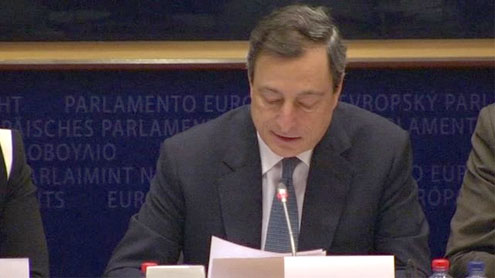 European countries have agreed to provide 150bn euros (£125bn; $194bn) to the International Monetary Fund.
European countries have agreed to provide 150bn euros (£125bn; $194bn) to the International Monetary Fund.
The money could be used to help countries in the eurozone struggling to pay their debts.Eurozone countries including Germany, Italy and Spain as well as several outside the eurozone offered support.But Britain’s decision not to take part in a scheme to support the eurozone meant EU finance ministers failed to reach their target sum of 200bn euro.The British government wants an increase in IMF resources to be part of a broader process involving all G20 nations.
“The UK has always been willing to consider further resources for the IMF, but for its global role and as part of a global agreement,” the office of UK Chancellor of the Exchequer George Osborne said in a statement.BBC Europe correspondent Chris Morris says Britain is insisting that the IMF’s role is to support countries not currencies.But, he adds, some will see this as another example of a lack of solidarity from London, at a time when the eurozone is struggling to emerge from months of economic crisis.
The largest contributers to the fund were Germany and Spain.Eurozone nations which have already had to accept international bailouts – such as Greece and Ireland – will not take part in the new scheme.But contributions to the IMF fund have also been pledged by several countries outside the eurozone, including Denmark, Poland, Sweden and the Czech Republic.
News of the agreement came as the European Central Bank President Mario Draghi said he had no doubts that the euro would survive.But the bank also warned that risks to the eurozone’s stability had increased and that, in the worst-case scenario, there could be a return to a global recession.In its twice-yearly Financial Stability Report it said that the risk of two large banks defaulting within the next year had risen to the highest level in four years.The ECB also warned that some eurozone banks had become addicted to central-bank funds, and could face “significant challenges”. – BBC












